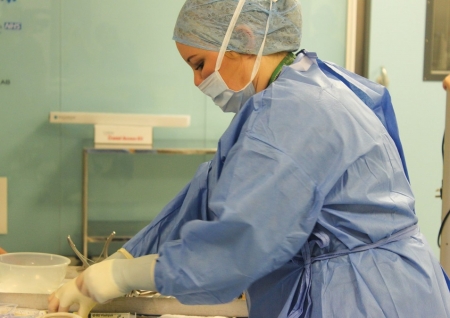
Specialists at Sheffield Children’s Hospital are providing children and young people about to start cancer treatment like chemotherapy or radiotherapy with the opportunity to plan for the future through fertility preservation.
Sheffield Children’s has provided more than 50 patients from ages one to 16 who are at high risk of infertility due to their treatment, the chance to preserve their ovarian or testicular tissue at time of diagnosis. Without this, the chemotherapy or radiotherapy may impact their ability to have their own children when they grow up.
In collaboration with colleagues at The Oxford Reproductive Tissue Cryopreservation Programme who have developed a fertility preservation treatment programme, specialists at Sheffield Children’s now offer this procedure to children and young people receiving cancer treatment in Sheffield, Leeds, Nottingham and Leicester.
The minimally invasive procedure is offered to children at the point of diagnosis, or prior to bone marrow transplant, if their treatment is expected to lead to loss of fertility. In most cases the surgery, which is done under general anaesthetic, can be carried out at the same time as the child is having another treatment-related procedure.
Thanks to the lead clinician who set up the service at Sheffield Children’s Hospital, Consultant Paediatric Oncologist Dr Dan Yeomanson, a specialist team has been trained to deliver fertility preservation treatment at Sheffield Children’s Hospital.
In collaboration with the Oxford team, Dr Yeomanson counsels patients and their families before surgery. The Sheffield team then arrange admission for surgery to collect tissue, which is transported to Oxford where the specialist team at the Oxford Cell and Tissue biobank process the tissue ready for storage in dedicated cryofreezers.
Before this fertility preservation service was established in Sheffield, patients had to travel to Oxford Children’s Hospital for this treatment. Sheffield Children’s Hospital was the first children’s cancer treatment centre, outside Oxford, to establish a fully integrated team to deliver fertility preservation in collaboration with the Oxford team. Due to its success, the ‘Sheffield model’ has now been adopted by other centres.
Dr Yeomanson said: “At Sheffield Children’s we are proud to have a holistic approach to treatment which means we can provide children the opportunity to invest in their future.
“When children are diagnosed with cancer, the first thing in a parent or the child’s mind may not be the possibility of having children in the future, but later in their cancer journey many cancer survivors identify this as a significant concern. We are privileged to be able to make sure this is an option for them and ensure they have every opportunity later in life.”
If a child who has stored ovarian tissue develops ovarian failure before they have a chance to start a family, the frozen ovarian tissue can be auto-transplanted to restore ovarian function and fertility. To date around the world there have been over 150 babies born from frozen ovarian tissue.
Storage of testicular tissue has only been possible for about 10 – 15 years. Although technology in the field of fertility preservation is advancing rapidly, the best use of frozen testicular tissue is one of many questions that still need to be addressed.
It is therefore vital that there are active national and international research programmes focused on this area of work. Every patient and their family are offered the opportunity to participate in this research and help push the boundaries of knowledge forward.
